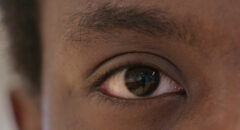
According to the American Diabetes Association, nearly 40 million people in the U.S. alone have diabetes, diagnosed and undiagnosed. While many people are aware of the struggles diabetics face, some conditions are lesser known.
One of those conditions is diabetic macular edema (DME). Never heard of it? Although the majority of Type 1 and Type 2 diabetics do not experience DME, many are not so fortunate.
Are you or someone you know at risk?
In this article, we’ll cover the two primary types of DME, what you should look out for, and what you can do.
RELATED: Diabetic Macular Edema: What Are Your Treatment Options?
First Off, What is DME?
Simply put, diabetic macular edema (DME) is a condition that affects the eyes of individuals with Type 1 and Type 2 diabetes. It affects the “macula,” a portion of your eye that controls central vision. People with DME experience an “edema” or swelling in the eye, which can trigger everything from broken blood vessels to excessive fluid.
Severe cases of DME may even lead to blindness.
There are generally two types of DME.
Diffuse DME
The definitions sometimes overlap, but generally speaking, diffuse DME refers to issues over a larger portion of your eye. Fluid leakage can cause difficulty seeing, pain, bleeding, and other issues.
Focal DME
Often less severe than diffuse DME, focal DME occurs in specific areas of the eye and is worsened by tiny swollen or burst blood vessels. Both focal and diffuse DME can be serious, and should not be taken lightly.
RELATED: 7 Signs Of DME And What To Do About It
Symptoms of Diffuse & Focal DME
We all get eye issues from time to time. Allergies might cause redness or itchiness. Chemicals and irritants in the air can cause watering and swelling.
So how do you know if your problems are caused by DME and not something else?
Firstly, consider your risk factors. Are you a diabetic? If so, how long have you had diabetes? Have you had eye issues before due to your diabetes? Research shows that the longer your history of diabetes and diabetes-related eye issues, the more likely you are to develop DME.
Also, consider your blood sugar levels. Do you keep an eye on them or could you be doing a better job to control them? While it can be easy to splurge (especially around the holidays), it’s critical that you take self-management seriously. High blood pressure, kidney disease, and high fat blood levels all contribute to DME.
Not sure if you’re dealing with the condition? The following symptoms may indicate you have DME:
- Blurred vision
- Double vision
- Floaters
- Blotches of vision loss
- Color changes in vision
If you’re experiencing any of these, consult your doctor immediately. No reason to panic, but it’s always a smart idea to stay ahead of the curve!
RELATED: 7 Ways You Can Slow the Progression of Diabetic Macular Edema
Best Ways to Prevent DME
If all this grim news has you sweating, don’t stress. There are many simple steps you can take to prevent DME from ever happening. Even if you do end up developing DME, you still have a lot of options.
That said, a healthy, proactive lifestyle is the first line of defense against DME.
As always, make sure to control your blood sugar. Get sunlight, exercise moderately, and try to eat as cleanly as possible. These measures will also help with your blood pressure and cholesterol levels, which can reduce the risk of DME.
Don’t Forget Your Checkups!
It’s also important to go for regular eye exams. This is a great way to catch any eye issues before they have a chance to balloon out of proportion.
*Note* Childbearing women who have diabetes are especially vulnerable to developing DME and should consult their eye doctors regularly.
Aside from that, just try to lead a normal, sustainable life. If you’re doing everything right but still develop DME, consult your physician about treatments. Typical treatments include medications, like steroids, and even laser procedures. You can even modify your home if you experience trouble seeing. Computers, lamps, screens, and reading materials can all be adapted for people suffering from DME.
So rest easy. Whether you’re at risk of DME or currently experiencing DME, there are numerous ways to treat your condition, improve your habits, and live a fulfilling life.









